SUBSTITUTING SINGLE USE PLASTICS(SUPs) WITH BIOPLASTICS,ECOFRIENDLY PLASTICS OR WITH OTHER ALTERNATIVES
If you are 'Fantastic' then do something 'Drastic' to cut the 'Plastic'!
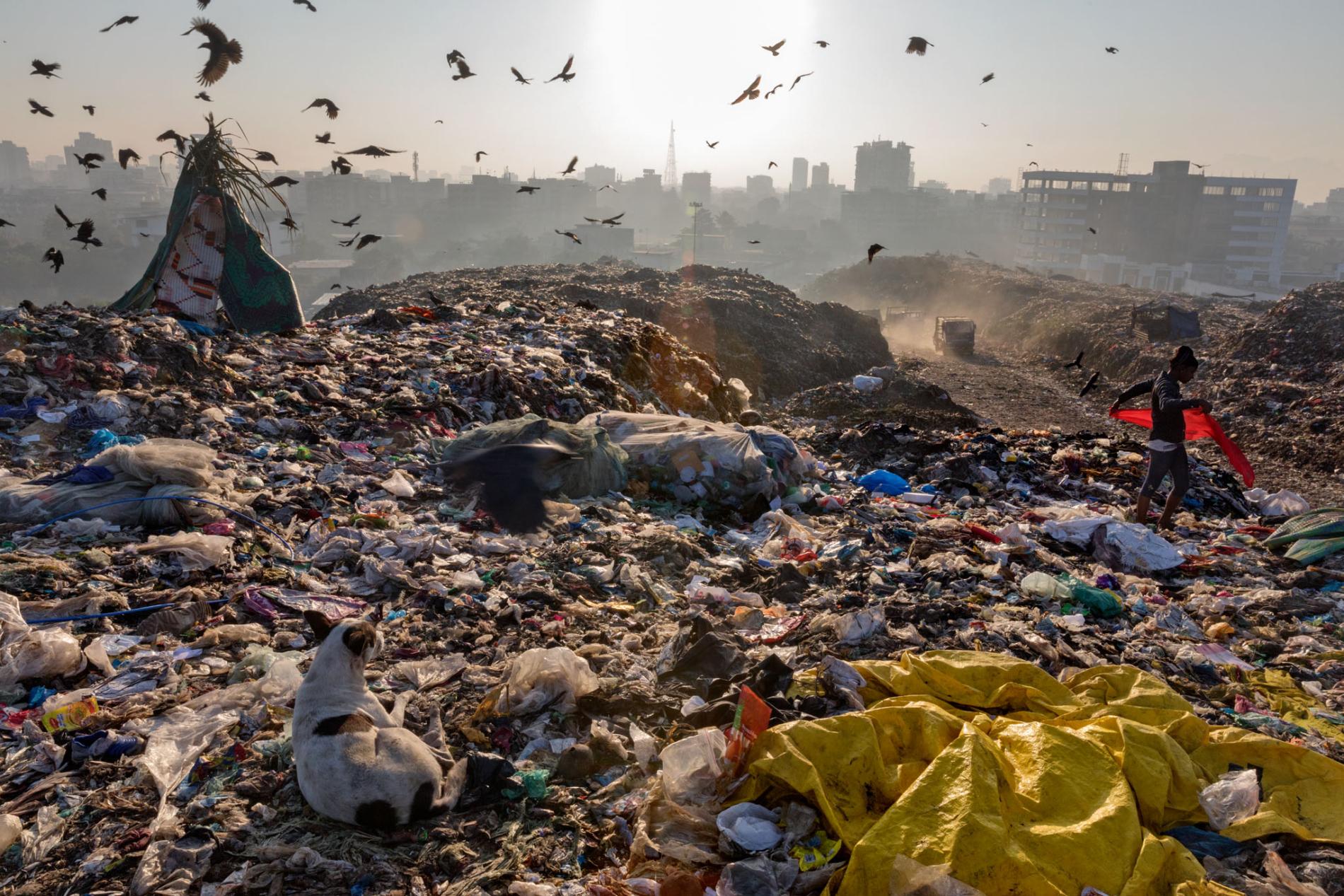
Plastic is wonderful because it is durable and plastic is terrible because it's durable. Almost every peice of plastic ever made is still on the planet in some form or the other. The world produces more than 300 million tones of plastic every year in form of plastic bags, plastic bottles etc, half of which we use once and throw away. By 2050 when the population explodes to almost 10 billion people. it is expected that plastic production would triple and the problem with that is, is that today only a fraction of the plastic that we produce is recycled that rest ends up in our enviroment in some form or the other, coating or lands and ocean like a disease.
Five Ways That Plastics Harm The Environment
1.Plastic is ubiquitous
.jpg)
Plastic debris is found absolutely everywhere, from the Arctic to Antarctica. It clogs street drains in our cities; it litters campgrounds and national parks, and is even piling up on Mount Everest. But thanks runoff, and to our fondness for directly dumping our trash into the nearest river or lake, plastic is growing increasingly common in the world’s oceans.
2. Plastics are one of the main products of fracking
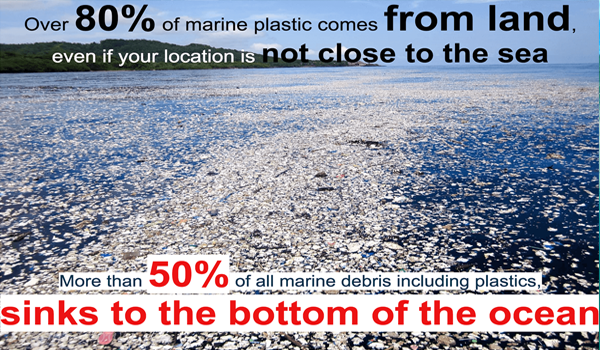
We already know that fracking is bad for the planet -- it pollutes water, soil and air with toxins, it creates underground cavities that collapse into sinkholes, and it raises pressure in underground rock formations, destabilizing them and leading to earthquakes, even in places where earthquakes are uncommon. Adding insult to injury, one of the main products of fracking is ... plastics. Basically, fossil fuels removed from shale and other rock formations are turned into resin pellets that are used to manufacture ever more plastics, plastics that are easily discarded, plastics that usually are designed to be single use.
You may not know that plastics manufacturers are dangerous to the environment, to wildlife and to people in other ways, too.
3. Plastics kill more than just people
In the last few months, the effects upon wildlife that come from eating, or becoming entangled in, plastic debris have been reported more widely and more often than ever before, leading to public outcry and protests.
These tragic events should come as no surprise: there are an estimated 270,000 tons of plastic floating through the world’s seas where it threatens 700 marine species with its presence. Further, there is growing evidence that plastics play a role in rising rates of species extinctions.
4. Not all plastic is recyclable and not all recyclable plastic is recycled
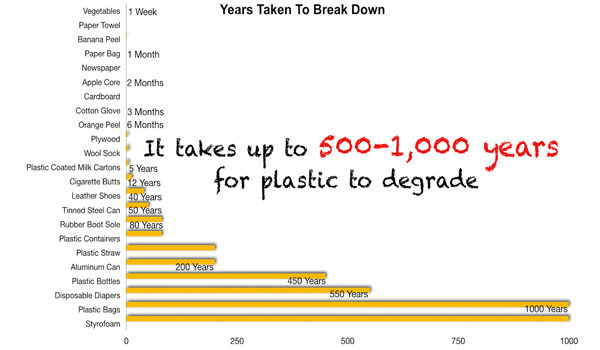
People are often confused by the terms, “break down” versus “biodegradable” (or “compostable”). When plastics are broken down, this simply means one large piece of plastic is reduced into a bunch of smaller pieces of plastic. These smaller pieces of plastic can be consumed by smaller animals, but are still indigestible.
A minority of plastics are “compostable” or “biodegradable”, which means they can be reduced to their chemical components by, say, your home compost. Other plastics can only be successfully composted by industrial or municipal facilities after first being separated from other, non-biodegradable, plastics.
Unfortunately, most people are confused as to which plastics fall into this biodegradable category, and this confusion often is most apparent when confronted with unfamiliar plastics in unfamiliar places. For example, are plastic water bottles purchased, say, at the airport biodegradable? Should they be disposed into the recycling bin or into the food waste bin? It’s often challenging to know, especially since little useful information is typically available to quickly make a decision.
5. Most plastics last forever
Once again, as demonstrated by the 1992 rubber duckie escape, plastics survive even the harshest conditions, such as floating around in a marine environment under blistering, unrelenting sunshine or frozen into Arctic ice for years before finally floating away and landing on some faraway shore. For this reason, plastics will probably outlast humanity itself. It is this apparent immortality leads me to my last point, which is that plastics may be co-opted for good.
These are some of the ill effects of plastics that i highlighted, there many more than these 5. But only highlighting the problem is not enough, certain steps are needed to scale down this problem of SUPs.
Some recommendations on how you can help our environment by reducing your plastic usage.
Avoid single-use plastics such as drinking straws
Single-use plastics, such as plates and cutlery made from this material, make our lives easier, but seriously harm the planet. These types of products have viable alternatives and there is an urgent need to chose these.
If you go shopping, remember to take a cloth bag
We go to the supermarket at least once a week to fill up our fridges. If every time we go we use reusable bags (cloth, string or wicker) the health of our planet will improve. From now on remember to take yours when leaving the house.
Recycle chewing gum... it's also make of plastic!
Most chewing gum currently on the market contains plastic. Try to buy less chewing gum and throw it in the correct recycling container. You can also opt for natural and organic chewing gums.
Buy more bulk food and fewer packaged products
Disposable containers are inundating supermarkets (polystyrene trays, PET bottles, tetra paks, plastic containers, etc.). But there is an alternative: more and more establishments are offering the possibility to buy in bulk.
Replace plastic Tupperware for glass or steel containers
If you eat at work, a Tupperware container is part of your day. We suggest you change your routine and opt for glass or stainless steel containers. Not only will the planet appreciate it, so will your health because some of these plastic containers can release harmful substances.
When hanging out washing use wooden pegs instead of plastic ones
Even the smallest of actions can have a major positive impact on our planet. For example, something as routine as hanging out clothes can become an extraordinary act if we change from plastic to wooden pegs.
Make those around you aware of the importance of reducing the consumption of plastic
If, in addition to reducing your consumption of plastic, you manage to get your family, friends and co-workers to do the same by setting an example, the impact of your actions for the good of the planet will increase exponentially.
Pay attention and put your plastic waste in the correct recycling container
Our lifestyle sometimes prevents us from paying attention to details. Therefore, when it comes to recycling plastic waste it can end up in the wrong container. Before throwing your waste away, think where each item has to go.
Avoid using cosmetics that use micro-plastics, buy a biodegradable brush and wear natural fabrics
The market today offers an array of alternative plastic-free products and the options are increasing. From lipsticks free of micro-plastic or brushes made of wood to t-shirts made of natural fabrics.
Choose to reuse and give some of the packaging a new purpose
If you have no choice but to buy a plastic bottle or a plastic container at the supermarket, reuse it instead of throwing it away. A bottle can be filled up as many times as you like and containers can be used to store other food.
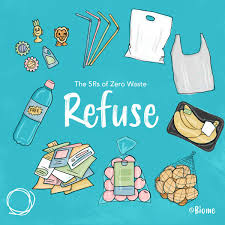 REFUSE
REFUSE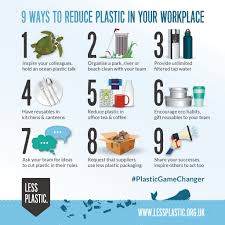 REDUCE
REDUCE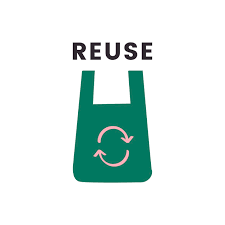 REUSE
REUSE12.jpg) RECYCLE
RECYCLEधन्यवाद
KRITIKA KUMARI Contact the author of the petition